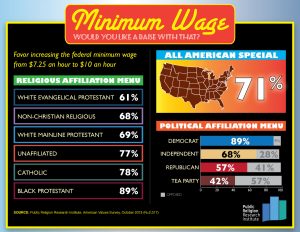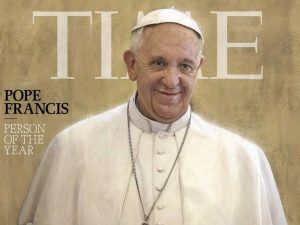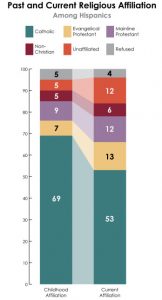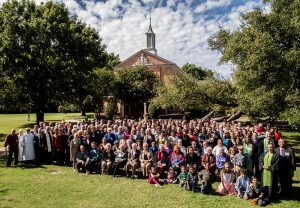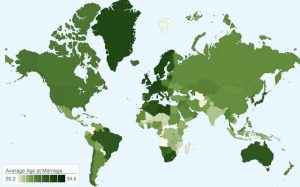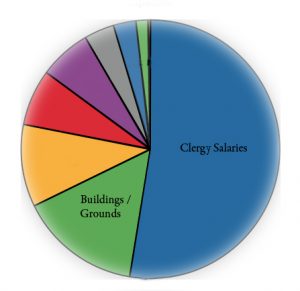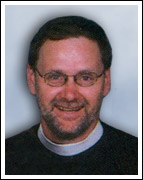Recently, the Public Religion Institute shared the following graphic of the week: So What? Minimum wage is one topic that is talked about with some regularity in certain circles. It has, however, become a far more common conversation topic of late for an expanding group of people. Rarely do the majority Democrats, Independents, and Republicans all agree on changing anything, much less increasing minimum wage by at least 50%. The same can be said for a majority of Read More …
Trends
Get Off the Phone (#1265)
Rhett and Link, morning talk show hosts and self-proclaimed Internetainers, recently created a thought provoking music video: Get Off the Phone. To date, it has received almost 1 million views. So What? The type and number of tasks for which people rely on phones continues to increase. Given this trend, it is important that smart phone users occasionally consider the ways in which they use their devices to determine if such is appropriate. Are you pleased with the Read More …
Pope = Person of the Year (#1264)
Earlier this week, TIME named Pope Francis as the 2013 Person of the Year. I encourage you to read their article and watch the brief video explanation of why he was selected. So What? Pope Francis is a change agent. In his talking and in his doing, he continues to clearly communicate what he understands the role of pope to be as well as how the church should be participating in and caring for the world. I have blogged more about Pope Francis in 2013 than I have about all Read More …
Trust is Waning (#1262)
People are less trusting than they used to be. Research shows a dramatic decline in trust in recent decades. More specifically, over the last 40 years the percentage of Americans who say that most people can be trusted has declined from 50% to 33%. So What? Only 1 out of every 3 Americans thinks most people are trustworthy. Our churches must be and become communities where trust in one another is normative rather than something that is present just 1/3 of the time. Do you think Read More …
Hispanic Americans Leaving Catholicism (#1261)
I often hear that the Catholic church in America will remain a power for years to come primarily because of Hispanics. The assumption that Hispanic Americans are and will remain Catholic is one that is challenged by recent data from the Public Religion Research Institute. Current Affiliation A majority of Hispanics identify as Catholic (53%), one-quarter (25%) identify as Protestant—nearly evenly divided between evangelical Protestant (13%) and mainline Protestant (12%)—and 12% of Read More …
Remembering My First Call (#1256)
My first call after graduating seminary was to serve as Associate Pastor at Central Christian Church: the longest continually meeting Protestant congregation in Dallas, Texas. This year, the congregation is celebrating its first 150 years of ministry. That celebration included numerous events. So What? Take a few minutes to remember your first experience of church - whether you were a child, a teen, or an adult. How did that congregation help you on your journey of faith? What people and Read More …
Average Marrying Age (#1255)
A Global Perspective Priceonomics recently created an image showing the average age of marriage across the world based on UN data. When comparing the age of marriage across many countries, higher income is associated with later age at marriage. The differences in average age for those nations near either extreme exceeds 10 years. Regardless of geography or income, men marry later than women. The gap, however, is wider in less developed countries. An American Read More …
Is the Clergy Housing Allowance Going Away? (#1254)
Several times each day for the last several days I have encountered people commenting on a recent ruling by a federal judge, which finds that the Internal Revenue Service exemption that allows clergy to shield a portion of their salary from federal income taxes is unconstitutional. Almost all commentators agree that the ruling will likely be appealed. Based on my own research, I think it is unlikely that the allowance will go away any time soon. I do, however, also Read More …
Church Giving Decline Continues (#1251)
In 2011 (the most recent year for which statistics are available) the percentage of a church member’s income given to the church was 2.3%. This percentage reflects a decline for the fourth consecutive year, marking the longest decline since the Great Depression. Additional research from Empty Tomb, including reports from 2011 and prior years are available online. As one might expect, the overall decline is impacting congregations affiliated with denominations all across the Read More …
Church-In-A-Pub (#1250)
Last month the regional council of the Evangelical Lutheran Church in America approved “Church-in-a-Pub” in Fort Worth, TX, as a synodically authorized worshiping community. Pastor Philip Heinze serves as pastor at Calvary Lutheran (Fort Worth, TX) and oversees this new venture, which is formally known as Kyrie. His approach is focused on connecting people to Jesus rather than to church: “I’m not interested, frankly, in making more church members,” Pastor Philip Heinze said. “I’m Read More …
